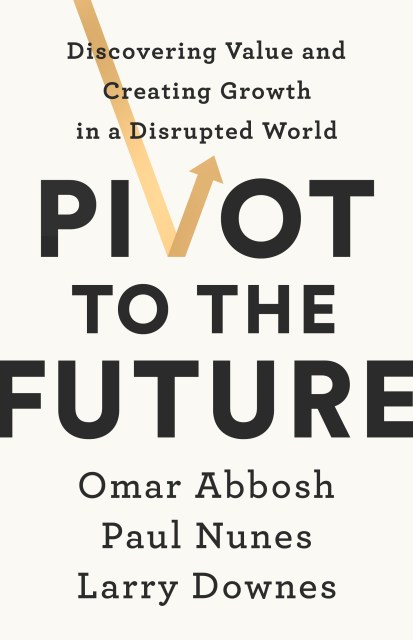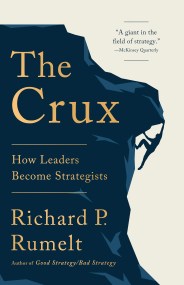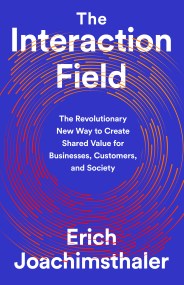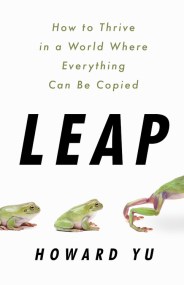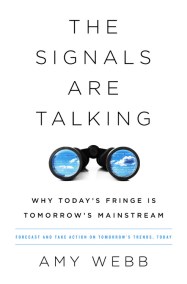Pivot to the Future
Discovering Value and Creating Growth in a Disrupted World
Contributors
By Omar Abbosh
By Paul Nunes
By Larry Downes
Formats and Prices
Price
$28.00Price
$36.50 CADFormat
Format:
- Hardcover $28.00 $36.50 CAD
- ebook $16.99 $21.99 CAD
- Audiobook Download (Unabridged)
Also available from:
The proven, effective strategy for reinventing your business in the age of ever-present disruption
Disruption by digital technologies? That’s not a new story. But what is new is the “wise pivot,” a replicable strategy for harnessing disruption to survive, grow, and be relevant to the future. It’s a strategy for perpetual reinvention across the old, now, and new elements of any business.
Rapid recent advances in technology are forcing leaders in every business to rethink long-held beliefs about how to adapt to emerging technologies and new markets. What has become abundantly clear: in the digital age, conventional wisdom about business transformation no longer works, if it ever did.
Based on Accenture’s own experience of reinventing itself in the face of disruption, the company’s real world client work, and a rigorous two-year study of thousands of businesses across 30 industries, Pivot to the Future reveals methodical and bold moves for finding and releasing new sources of trapped value-unlocked by bridging the gap between what is technologically possible and how technologies are being used. The freed value enables companies to simultaneously reinvent their legacy, and current and new businesses.
Pivot to the Future is for leaders who seek to turn the existential threats of today and tomorrow into sustainable growth, with the courage to understand that a wise pivot strategy is not a one-time event, but a commitment to a future of perpetual reinvention, where one pivot is followed by the next and the next.
Disruption by digital technologies? That’s not a new story. But what is new is the “wise pivot,” a replicable strategy for harnessing disruption to survive, grow, and be relevant to the future. It’s a strategy for perpetual reinvention across the old, now, and new elements of any business.
Rapid recent advances in technology are forcing leaders in every business to rethink long-held beliefs about how to adapt to emerging technologies and new markets. What has become abundantly clear: in the digital age, conventional wisdom about business transformation no longer works, if it ever did.
Based on Accenture’s own experience of reinventing itself in the face of disruption, the company’s real world client work, and a rigorous two-year study of thousands of businesses across 30 industries, Pivot to the Future reveals methodical and bold moves for finding and releasing new sources of trapped value-unlocked by bridging the gap between what is technologically possible and how technologies are being used. The freed value enables companies to simultaneously reinvent their legacy, and current and new businesses.
Pivot to the Future is for leaders who seek to turn the existential threats of today and tomorrow into sustainable growth, with the courage to understand that a wise pivot strategy is not a one-time event, but a commitment to a future of perpetual reinvention, where one pivot is followed by the next and the next.
Genre:
- On Sale
- Apr 23, 2019
- Page Count
- 288 pages
- Publisher
- PublicAffairs
- ISBN-13
- 9781541742673
Newsletter Signup
By clicking ‘Sign Up,’ I acknowledge that I have read and agree to Hachette Book Group’s Privacy Policy and Terms of Use
